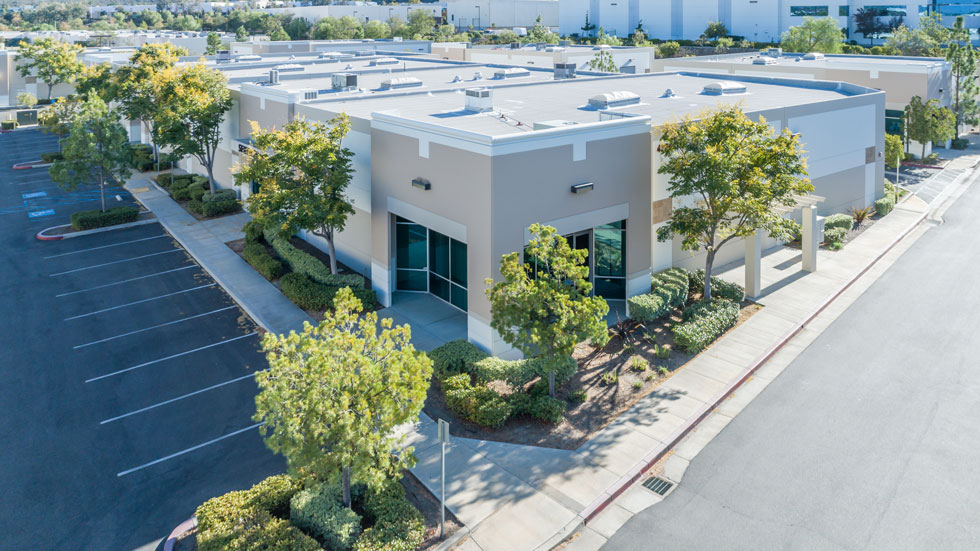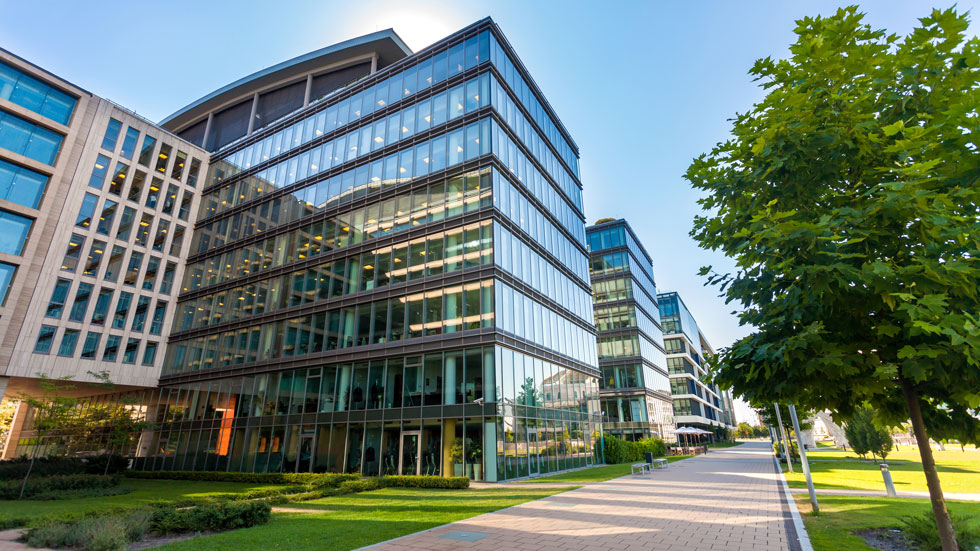Since its launch in 2017, Blackstone Real Estate Income Trust, Inc. (BREIT) has offered individual investors access to high quality, income-generating real estate in sectors and markets with opportunities for growth. Over the past five years, BREIT has amassed a $94 billion portfolio as of year-end 2021.
Frank Cohen, BREIT chairman and CEO, says the REIT is constantly looking at new investment alternatives. “We’ll never be solely focused on one sector or another. We are continuously looking at a lot of different sectors. We really think of ourselves as active investors and portfolio managers in this regard,” he says.
BREIT has recently closed a number of high-visibility transactions in sectors including single-family homes, data centers, and self-storage. Cohen spoke to REIT magazine about some of these transactions and how BREIT is positioning itself, the value of ESG, the importance of anticipating change, and more.
What’s your view on the state of the commercial real estate industry? What impact might rising interest rates and inflation have?
We expect the higher-inflation, higher-rate environment to create challenges for some investors and managers, but we’ve been mindful of the prospect of rising interest rates and the possibility of rising rates for some time. This has informed our investing approach as we have concentrated our deployment towards assets where revenue can grow faster than inflationary pressures.
The way we think about it is that there are two things that increase prices for assets—rising cash flows and rising multiples. In an inflationary, rising rate environment, multiples tend not to increase so the importance of owning things where cash flow will grow is super important.
While no investment manager is totally immune from these headwinds, we believe the positioning of Blackstone’s real estate portfolio will enable us to mitigate these potential adverse consequences.
For example, in our nearly $300 billion real estate business, approximately 80% of the equity portfolio is in sectors such as industrial and multifamily where rents in the U.S. are growing significantly in excess of the rate of inflation.
BREIT just celebrated its fifth anniversary and has delivered a 13% annualized return since inception. What are some of the success factors you’ve seen in investing?
Our goal from the start was to bring Blackstone’s institutional real estate platform to the individual investor so ultimately, the biggest success factor has been the performance we have produced for those investors.
I think we’ve also created a product and a platform with distinct competitive advantages. We are thematic investors so we’re always looking for areas of outsized potential and trying to really draw on the proprietary information that we have within our own portfolio. We’re really focused on large, complicated deals where there’s less competition involved. And so, I think when you bring BREIT’s proprietary advantages together with Blackstone’s global institutional platform, this really resonates with our investors.
Blackstone has been engaged with REITs, listed and non-listed, for many years. What’s your perspective on how investors can use them to complement or hedge an investment portfolio over other fixed income products?
For investors looking for steady forms of yield, even with rates rising, we believe real estate is well positioned. BREIT has paid 62 straight monthly dividends at roughly a 4% annual yield, much of which is tax deferred and classified as return of capital.
As a result, REITs stack up very well as a fixed income alternative, plus you can get the upside from the underlying real estate. In terms of listed REITs, the share price is not always reflective of the underlying real estate value. Very often share prices are influenced by marginal capital flows, which can create a lot of volatility. The listed REIT market, though, can be used tactically to add or subtract exposure to specific sectors on a total basis.
If there were any missteps over the past five years, what were they and what did you learn from those experiences?
I’ve been at Blackstone since 1996 and the one consistent thing I have seen when investing real estate capital is that uncertainty and volatility is just part of investing. So, whether it was the tech bubble in 2000 or the financial crisis in 2008, or COVID in 2020, what I’ve really learned is that you always have to be looking around corners and anticipating change. There’s always going to be uncertainty and volatility. And as an investor, I’ve learned that part of the job is to be prepared for the inevitable—and change is inevitable.
BREIT recently agreed to spend $1 billion to acquire single family homes and help address housing affordability challenges as part of its Choice Lease program in the U.S. What impact do you expect this to have on the current housing market?
It’s very clear there are issues in this country with housing. The biggest issue is that we don’t have enough of it, plain and simple. We’re not building enough and especially not enough affordable housing. This goes back to the global financial crisis in the late 2000’s. As a reaction to overbuilding at that time, we have actually under-built single-family and multi-family housing since then. We are currently several million units shy of where we need to be.
In addition, clearly our goal is to be good investors and provide solid returns for those who invest in our real estate funds. We believe being a good corporate citizen is central to that mission. We see this program as providing an opportunity to drive value for our investors through meeting a community need.
ESG is definitely a global theme. There is no doubt that more people are focused on ESG and working towards strong, positive ESG outcomes across portfolios. And there will only be more focus going forward.
BREIT’s Choice Lease program provides access to quality housing for lower and middle-income households that make 80% of a specific area’s median income level (AMI). We are committed to providing these families with an opportunity to initially rent a desirable home at a discounted rate that’s 10% below the local market in most cases. They then will be provided a fixed rate option to purchase the home they are renting at below market rates every year.
The ultimate goal of the program is to expand access to high quality housing for lower- and middle-income individuals and families with less savings and/or lower credit scores. For us, this is an opportunity to make a great investment all the way around. We’ll find that these tenants will have very stable occupancy rates, so we get a good risk adjusted return overall.
Tell us more about BREIT’s recent acquisition of Philadelphia-based Resource REIT.
One of the things that we have tried to do at Blackstone is focus on very large and complex transactions, which at times can be public company transactions. We’ve done 11 deals of over $1 billion just in the last 12 months. In the case of Resource REIT, this was a public company owning approximately 12,000 apartments across 42 apartment communities. These apartments are located in the Southeast and the Southwest—markets that are dynamically growing.
If you look at BREIT’s portfolio, we’re overweight in sectors we think will continue to see great growth potential, and in geographies that have the highest amounts of population growth, new household formation, and job growth. So, acquiring Resource REIT is very much in line with our strategy and fits nicely into the portfolio as well.
BREIT’s portfolio has been focused on industrial and multifamily, but given recent acquisitions how do you see the portfolio evolving during the coming years?
Our job as investors is to identify areas of growth and then overweight those areas and sectors. We are constantly looking into interesting trends and anticipating change. If you went back 20 years and looked at the Blackstone real estate portfolio then, it was probably a third office, a third hotels, and a third other sectors.
Today, BREIT is overweight residential and industrial because that’s where we see great fundamentals. Both are very stable asset classes. E-commerce has been a huge tailwind for industrials, obviously. So, in terms of how our lens evolves over time, we are always looking at what sort of new and interesting things could be out there.
That’s why we bought Simply Self Storage two years ago. We added a self-storage platform because it benefits from high tenant retention and low capital expenditure. Last year, we did the QTS Realty Trust deal, which was a large data center deal. More data has been produced in the last two years than in all of human history before that time. As a culture, we will continue to need data centers to store all of the information in our devices, and QTS is a high-quality data center company.
Most recently, we announced the acquisition of American Campus Communities, Inc. (NYSE: ACC), the largest developer and operator of student housing in the country. We like this sector as well, because it is resilient during market cycles and delivers strong cash flow. Our job is to always be looking at where we see avenues of growth and then overweight those avenues.
How interested in ESG are REIT shareholders and what are some favorable outcomes BREIT has experienced managing your own ESG initiatives and benchmarks?
ESG is definitely a global theme. There is no doubt that more people are focused on ESG and working towards strong, positive ESG outcomes across portfolios. And there will only be more focus going forward. With regards to today’s REIT investors, some are more focused on ESG than others. We’ve definitely seen that trendline expand. As an example, European institutions are very focused on ESG but there are other parts of the world where maybe there is less focus.
As investors and as corporate citizens, we’re very focused on ESG as well. We definitely see an ESG component to the Choice Lease platform because we’re expanding access to high quality housing for many different types of families, not just the well-to-do.
We’re focusing on ESG in many other ways too. At QTS, we are working on a program to get to 100% renewable power. We are trying to make 90% of our portfolio green building certified. ESG represents something that we continue to integrate across our portfolio in a lot of different ways.
We’ve also brought in very senior ESG professionals to lead efforts at the firm. We’ve committed ourselves to diversifying the boards of directors for the different companies that we run. We’ve expanded the way that we recruit talent at the firm to be inclusive and diverse. I think ESG is something that is and will remain a large focus here at Blackstone and ultimately, you’ll see our underlying investors continue to be very concerned about managing ESG as well.


